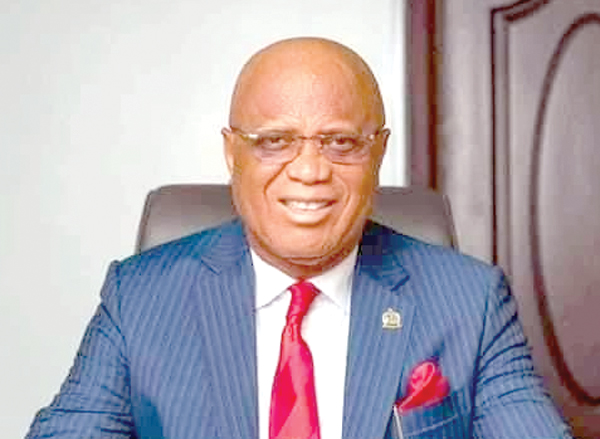The Akwa Ibom state government says it is adopting a multi-pronged approach to tackling hunger, especially among the poorest of the poor in the state even as it is targeting 600 households for free food.
To achieve this, the commissioner for agriculture and Rural Development, Dr. Offiong Offor disclosed this, saying that the administration of Governor Umo Eno was embarking on massive food production through investments in agriculture.
Speaking on Monday during a media interaction tagged ARISE Scorecard with the theme, ‘Food Sufficiency and Security’, Offor listed strategies adopted by the government to feed the people.
With her at the briefing was the commissioner of Information and Strategy, Mr Ini Ememobong, Commissioner of economic development, Emem Bob and the chairman, Akwa Ibom Bulk Purchase Agency, Mr Dan Akpan.
She disclosed that 7 local government areas in the state have provided lands to support food production.
“Government is funding agricultural cooperative societies, providing lands, fertilizers, improved seedlings, cassava stems, loans and grants and constructing rural roads all in a bid to increase food production.
“Food sustainability remains the priority of Governor Umo Eno’s administration. The first thing is that the Ministry of Agriculture merged with the Ministry of Rural Development which also has a component of cooperatives.
“He was deliberate in doing this because the cooperatives system is the system that is driving food productivity anywhere in the world.
“The state government has a database of farmers and is working with farmers associations such as the All Farmers Association of Nigeria, Rice Farmers Association, Aquaculture Associations in the 31 local government areas of the state.
“The government is also working with market unions to supply staple foods at subsidized prices. It has provided cold rooms, fishing nets and boats to artisanal fishermen.”
Also speaking, the commissioner of economic development, Mr Emem Bob said that government was targeting about 600 households captured in its social register for it various intervention programmes aimed at ameliorating economic hardship in the state
Emem said though the state social register has increased to 2.3 million people, the government is reaching out to the vulnerable poor through 600 households captured in the social register.
“The social register is well-structured, it’s structured in such a way that we have broken the villages, wards and local governments, these make up the state social register. The total number of people we have in the social register is 2.3m as individuals
“When you talk about households we have about 600 households in the social register and that is what we have been using for various interventions in the state,” Bob said.
He explained that the process for selection into the social register is very clear and transparent, adding that the social register has been there for the past 8 years but Governor Umo Eno, only ordered that it should be expanded to accommodate those who have fallen under the poverty line
He said “How people are selected for the social register is very clear, it is a very transparent process in the sense that there is what we call community-based targeting.
“Don’t forget that anything that involves the World Bank is very transparent; they are thorough. Community-based targeting is what was used for social registration and we have state-organizing coordinating units which work with the national social safety nets coordinator unit in Abuja, they work together and they have staff across the local government. They go to villages, meet with village heads to pick these people” she explained.
The information commissioner had while setting the tone for the briefing expressed appreciation to Governor Umo Eno for the various intervention programmes of the government to address the current hardship in the state.
ALSO READ: Stop awarding pipeline contracts to ex-militants, coalition urges Tinubu
